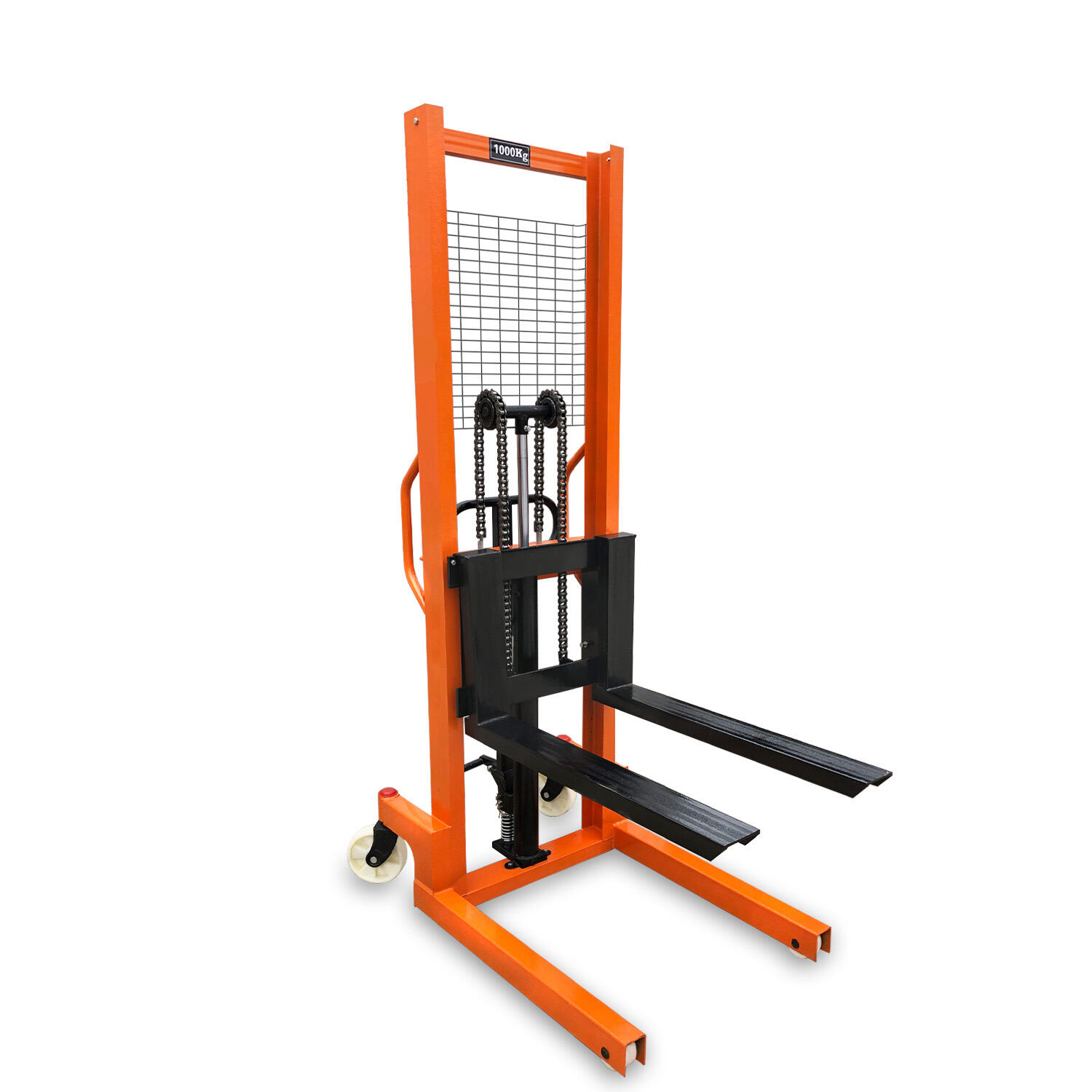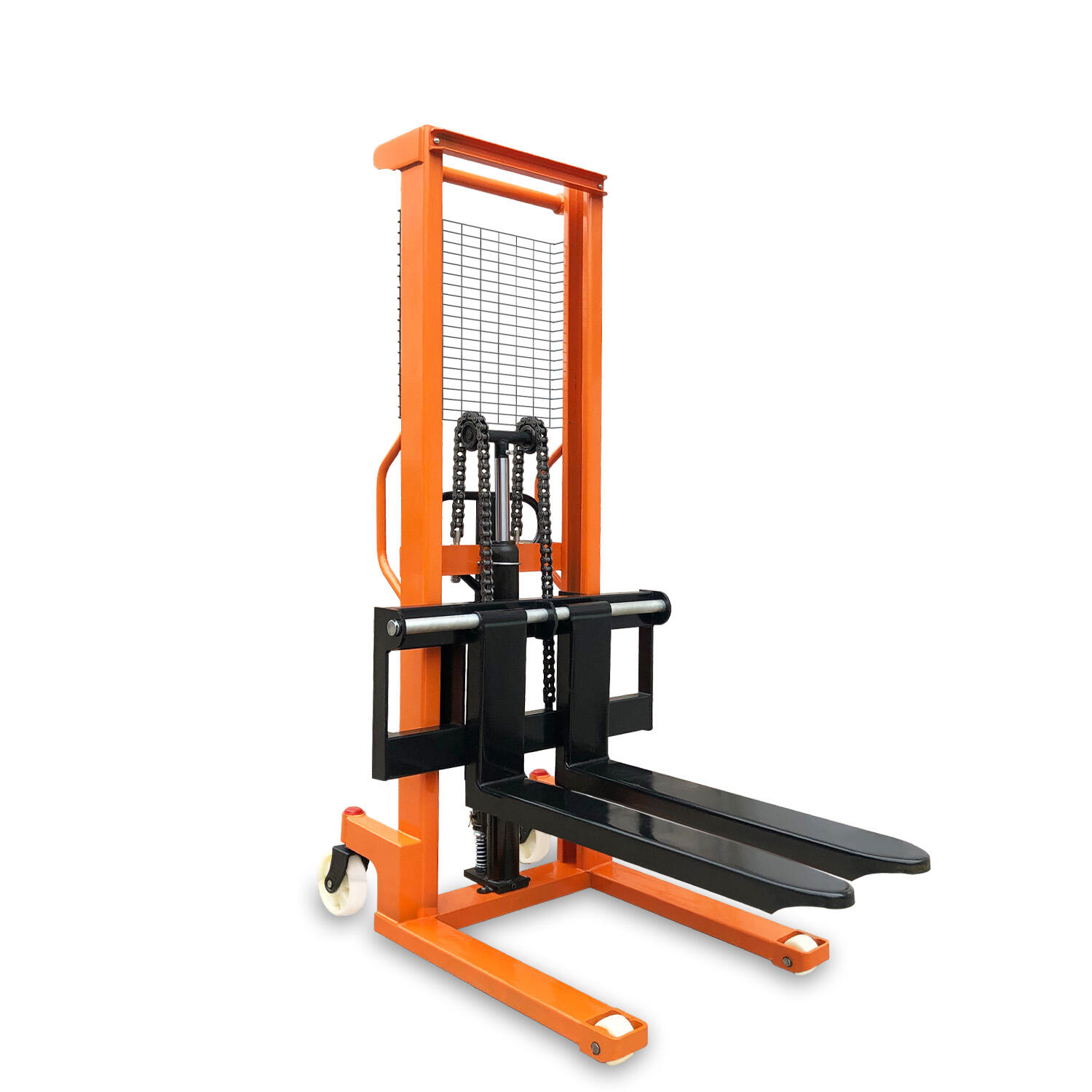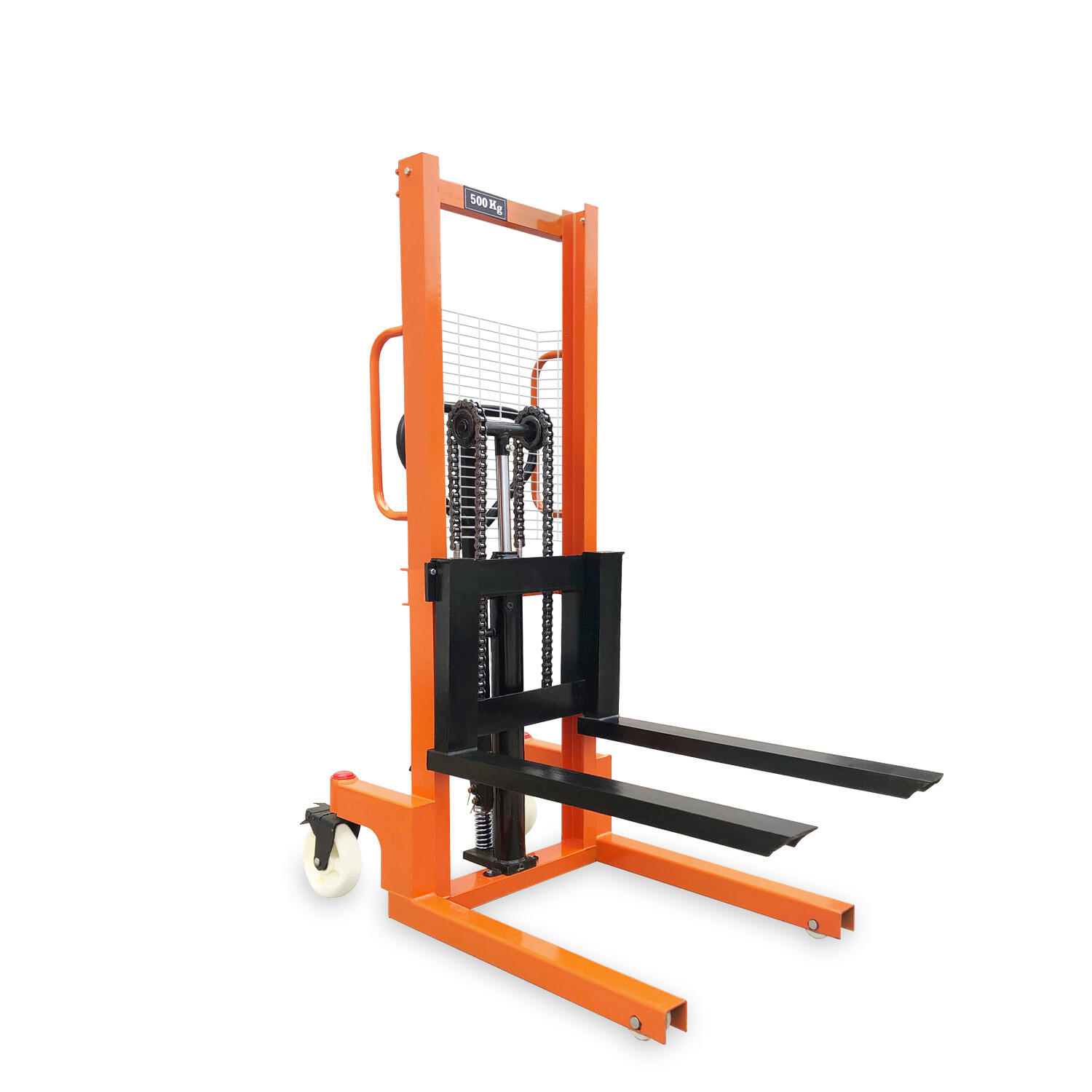A semi electric hand stacker represents a perfect balance between manual and fully electric material handling equipment, designed to combine the cost-effectiveness of manual operation with the convenience of electric power for specific tasks. This hybrid design makes it an ideal choice for businesses that need to handle moderate to heavy loads but do not require the continuous high-power operation of a fully electric stacker. Its unique combination of manual maneuverability and electric lifting capabilities ensures efficiency, reduces operator fatigue, and enhances productivity in a variety of industrial, commercial, and warehouse settings. At the core of a semi electric hand stacker is its dual-operation system: the lifting and lowering functions are powered by an electric motor, while the movement of the stacker itself is handled manually. This design eliminates the need for manual pumping to lift loads, which is the most physically demanding part of operating a fully manual stacker, while still allowing operators to push or pull the stacker to the desired location using their own strength. The electric lifting mechanism is powered by a rechargeable battery, typically a lead-acid or lithium-ion battery, which provides the necessary energy to raise loads with the simple press of a button or flip of a switch. This not only reduces the physical strain on operators but also speeds up the lifting process, making it possible to handle more loads in less time compared to a fully manual stacker. The lifting capacity of a semi electric hand stacker varies, but most models can handle loads ranging from 1 ton to 2.5 tons, with lifting heights typically between 1.6 meters and 3 meters. This makes it suitable for a wide range of applications, from stacking pallets in warehouses to loading and unloading trucks, and handling bulk items in retail or manufacturing environments. The electric lifting system is controlled by a simple joystick or button panel located on the handle, allowing operators to raise or lower loads with precise control. This precision is crucial for placing loads accurately on high shelves or into tight spaces, reducing the risk of damage to goods or equipment. The lowering function is often controlled by a separate valve or button, ensuring that loads are lowered slowly and smoothly, even when the battery is low. The construction of a semi electric hand stacker is designed to support its hybrid operation while maintaining durability and stability. The frame is typically made from high-strength steel, providing a sturdy base that can withstand the weight of heavy loads and the stresses of daily use. The steel components are often treated with anti-corrosion coatings to resist rust, ensuring a long lifespan even in humid or dusty environments. The forks, made from reinforced steel, are designed to securely hold pallets and other loads, with some models offering adjustable fork widths to accommodate different pallet sizes or non-palletized items. The mast, which supports the lifting mechanism, is constructed from heavy-gauge steel or aluminum alloy, balancing strength with weight to ensure stability during lifting without making the stacker too heavy to maneuver manually. Maneuverability is a key advantage of the semi electric hand stacker, thanks to its relatively lightweight design compared to fully electric stackers. The manual movement aspect allows operators to navigate through narrow aisles, around obstacles, and into tight spaces with ease, making it suitable for use in small warehouses, retail stores, and manufacturing facilities where space is limited. The stacker is equipped with high-quality wheels, including swivel front casters that allow for smooth turning and fixed rear wheels that provide stability. The wheels are often made from polyurethane, which offers good traction on both concrete and asphalt surfaces, minimizes noise, and reduces floor damage, making them suitable for indoor use in environments like supermarkets or offices. The handle is ergonomically designed, positioned at a comfortable height to reduce strain on the operator’s back and shoulders during pushing or pulling. Many models feature a padded grip for added comfort during extended use. Battery life is an important consideration for the semi electric hand stacker, as it directly impacts operational uptime. Most models use either lead-acid or lithium-ion batteries, with lithium-ion batteries offering several advantages, including longer life, faster charging times, and lighter weight. The battery capacity is typically sufficient to handle a full day’s work on a single charge, with charging times ranging from 6 to 8 hours for lead-acid batteries and 2 to 4 hours for lithium-ion batteries. Many stackers are equipped with a battery level indicator on the handle, allowing operators to monitor the remaining charge and avoid unexpected downtime. Some models also feature a built-in charger, making it convenient to recharge the battery when not in use, without the need for a separate charging station. Safety features are integrated into the design of the semi electric hand stacker to protect operators, goods, and the equipment itself. Overload protection is a common feature, preventing the stacker from lifting loads that exceed its rated capacity and reducing the risk of structural damage or tip-overs. The wide base design and low center of gravity enhance stability, even when lifting loads to maximum height. A parking brake, often located on the handle, locks the wheels in place when the stacker is stationary, ensuring it does not move during loading, unloading, or when parked on inclines. The handle is also designed to be easily accessible, allowing operators to quickly stop or control the stacker in case of an emergency. Some models include a safety guard or shield around the lifting mechanism to prevent accidental contact with moving parts, further enhancing operator safety. Maintenance of the semi electric hand stacker is relatively simple, combining the ease of maintaining a manual stacker with the basic upkeep required for battery-powered equipment. Routine maintenance tasks include checking the battery level and ensuring it is charged regularly to extend its lifespan. The battery terminals should be cleaned periodically to prevent corrosion, which can affect performance. The hydraulic system (if applicable) should be checked for leaks and the fluid level maintained, though the electric lifting system reduces the need for hydraulic maintenance compared to fully manual stackers. The wheels and casters should be inspected for wear and lubricated to ensure smooth movement. The forks and frame should be checked for signs of damage, with any issues addressed promptly to prevent further deterioration. The electrical components, such as the joystick and wiring, should be inspected for damage or loose connections to ensure reliable operation. The applications of the semi electric hand stacker are diverse, making it suitable for a wide range of industries. In retail, it is used to handle bulk items like clothing, electronics, or household goods, stack inventory on high shelves, and load/unload delivery trucks. Manufacturing facilities use it to transport raw materials, move work-in-progress items, and store finished products. Warehouses and distribution centers rely on it for organizing pallets, maximizing vertical storage space, and facilitating order picking. It is also useful in food and beverage industries for handling cases of bottled drinks, canned goods, or frozen products, thanks to its easy maneuverability in cold storage environments. Even in small businesses, such as hardware stores or auto parts shops, the semi electric hand stacker simplifies the handling of heavy items like tools, tires, or building materials. When choosing a semi electric hand stacker, businesses should consider several factors to ensure it meets their operational needs. Load capacity is a primary consideration, as selecting a stacker with a capacity that exceeds the maximum load weight ensures safety and durability. Lifting height must match the height of storage racks or shelves, with some models offering extended lifting heights for tall warehouses. Battery type and capacity are important for ensuring sufficient uptime, with lithium-ion batteries being a better choice for businesses that require fast charging and longer life. The size and weight of the stacker should be considered in relation to the operating environment, with compact models being better suited for tight spaces. Adjustable features, such as fork width or handle height, can enhance versatility, allowing the stacker to handle a wider range of loads. Price is a factor, but the increased efficiency and reduced operator fatigue offered by the semi electric design often justify the higher cost compared to fully manual stackers. In conclusion, the semi electric hand stacker is a versatile and efficient material handling solution that combines the best of manual and electric operation. Its electric lifting system reduces operator fatigue and increases productivity, while its manual maneuverability allows for use in tight spaces. With its durable construction, precise control, and ease of maintenance, it is an ideal choice for businesses looking to streamline their material handling processes without investing in fully electric stackers. Whether used in retail, manufacturing, warehousing, or other industries, the semi electric hand stacker offers a practical and cost-effective way to handle moderate to heavy loads with ease.


